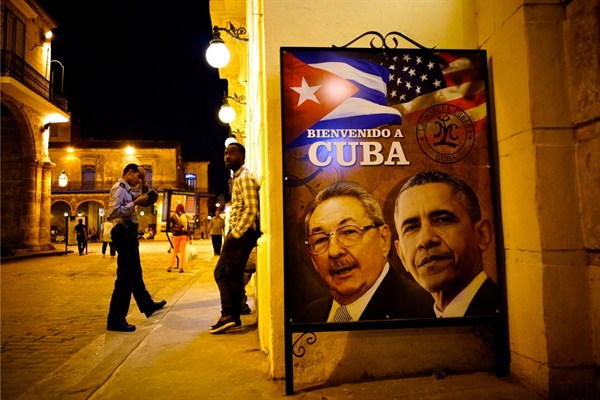President Barack Obama’s trip to Cuba on March 21-22 marks a pivotal moment in the unfolding process of normalizing U.S.-Cuban relations. In the 15 months since Obama and Raul Castro declared the end of the cold war in the Caribbean on Dec. 17, 2014, there has been just enough progress to justify the historic presidential visit. But much remains to be done. By underscoring the commitment of both presidents to prioritize better relations in the time they have left in office, the trip should energize their government bureaucracies to accelerate the pace of change.
After a slow start—it took six months to agree on reopening embassies—diplomatic progress has moved surprisingly fast. The teams of diplomats that negotiated the restoration of formal diplomatic ties have been reconstituted as a Bilateral Commission that meets quarterly to oversee and prioritize some two dozen separate working groups and technical conversations on a broad range of issues, including human rights, property claims, migration, human trafficking, law enforcement, counternarcotics cooperation, maritime safety and Coast Guard cooperation, environmental protection and global health cooperation.
In the past seven months, the U.S. secretaries of state, commerce, transportation and agriculture have traveled to Havana, and the Cuban ministers of foreign relations and foreign trade and investment have visited Washington. The two governments have signed four cooperative agreements thus far, on protecting the maritime environment in the Caribbean, environmental protection more broadly, civil aviation, and postal service. Agreements on global health cooperation and counternarcotics cooperation seem close to fruition, perhaps needing just a final presidential imprimatur.

